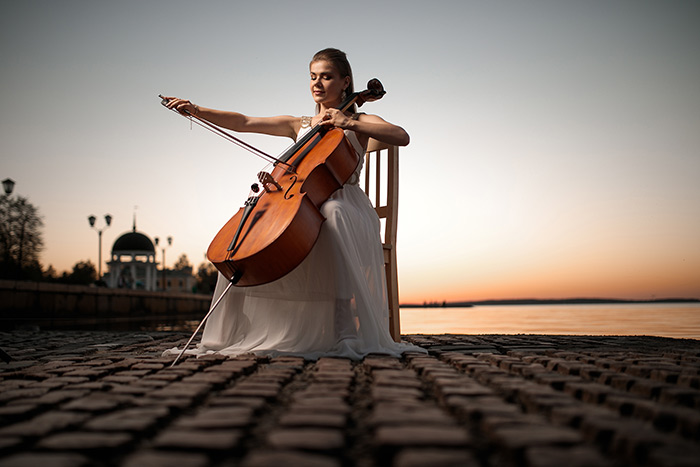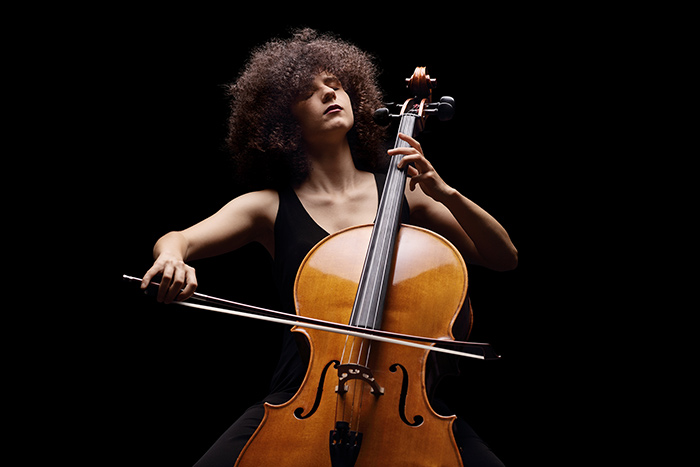The cello, often considered the “voice” of the string section, has a rich and storied history that has been shaped by countless talented musicians.
However, for many years, women were largely excluded from this world, with few opportunities to make their mark on the instrument’s development.
In this article, we’ll explore the stories of some of the pioneering women cellists who broke barriers and paved the way for future generations of female cellists.
Early Pioneers
Élisabeth Jacquet de La Guerre
Born in 1665, Élisabeth Jacquet de La Guerre was a child prodigy who defied the conventions of her time. As a female musician, she was rare and remarkable, and her talent on the cello was especially unusual. Jacquet de La Guerre’s mastery of the instrument was just one aspect of her extraordinary skillset, as she was also a talented composer and harpsichordist.
As one of the most celebrated composers of the Baroque period, Jacquet de La Guerre’s inventive compositions spanned genres, including opera, ballet, and chamber music. Her work was highly regarded by the French court, and she enjoyed the patronage of Louis XIV. Her compositions continue to be admired for their lyrical melodies and harmonic complexity, showcasing her innovative approach to music.
Jacquet de La Guerre’s achievements were a testament to her dedication, talent, and perseverance. Despite the societal barriers that women faced in her time, she broke through the glass ceiling and became a prominent figure in the musical world. Her legacy serves as an inspiration to women cellists today, reminding them of the importance of pursuing their passions and pushing boundaries.
Beatrice Harrison
Beatrice Harrison stands tall as an early pioneer in the classical music world, leaving an indelible mark on the landscape of cello performance. Born in 1892 in England, Harrison emerged as one of the first women to garner international recognition as a cellist. Her journey began as a student at the prestigious Royal College of Music, where her exceptional talent and dedication quickly set her apart.
Throughout her illustrious career, Harrison became renowned not only for her technical prowess but also for her deeply expressive playing, captivating audiences with every performance. Beyond her achievements on stage, Harrison’s influence extended into the realm of music education. She played a pivotal role in the establishment of the British School of Music and dedicated herself to mentoring the next generation of musicians.
Harrison’s legacy serves as a beacon of inspiration for women cellists around the world, underscoring the importance of perseverance, passion, and the relentless pursuit of excellence. Her life’s work reminds us of the transformative power of music and the enduring impact of those who dare to push boundaries and defy expectations.
The 20th Century
In the 20th century, women cellists continued to break barriers and make their mark on the instrument’s history.
Natalia Gutman
Natalia Gutman, a celebrated cellist born in 1942, left an enduring impression on 20th-century classical music with her extraordinary talent. Guided by distinguished mentors like Mstislav Rostropovich, she cultivated a deep understanding of the cello’s expressive range and swiftly established herself as a remarkable prodigy.
Gutman’s illustrious career was defined by her exceptional musicianship, profound interpretations, and enthralling performances. She revitalized the cello repertoire, earning acclaim from both critics and peers for her technical mastery and emotional depth, positioning her as a foremost interpreter of her generation.
In addition to her achievements as a performer, Gutman’s dedication to music education and mentorship has left a lasting legacy. Revered as a teacher, she has inspired and guided numerous aspiring musicians, passing on her expertise and love for the cello to future cohorts. Gutman’s influence reverberates throughout the cello community, inspiring artists globally with her artistry, integrity, and unwavering pursuit of excellence, cementing her status as one of the most esteemed and influential cellists of the 20th century.
Jacqueline du Pré
Another luminary of the 20th century was Jacqueline du Pré, born in England in 1945. Renowned for her passionate and expressive playing style, du Pré captivated audiences with her profound emotional depth and intensity.
Her career soared to international acclaim, marked by stellar performances and acclaimed recordings. Notably, her interpretations of composers like Edward Elgar and Antonín Dvořák are regarded as definitive renditions, inspiring generations of cellists.
Tragically, Jacqueline’s career was cut short by multiple sclerosis, forcing her to retire at a young age of 28. Despite her illness, her recordings remain cherished, ensuring her enduring legacy in classical music.
Modern-Day Cellists
Today, women cellists are more prominent than ever, with many talented musicians making their mark on the instrument’s history.
Sol Gabetta
Sol Gabetta, an Argentine cellist born in 1981, has risen to prominence as one of today’s leading interpreters of the cello. Trained at esteemed institutions such as the Escuela Superior de Música Reina Sofía in Madrid and the Basel Music Academy in Switzerland, Gabetta’s talent and dedication were evident from the outset of her career.
Praised for her performances characterised by emotional depth, technical precision, and a wide dynamic range, she has garnered widespread acclaim from both audiences and critics alike.
Collaborating with prestigious orchestras and conductors, Gabetta has showcased her mastery of a diverse repertoire, spanning classical masterpieces by Bach and Beethoven to contemporary compositions by Osvaldo Golijov. Her authentic interpretations have earned her numerous accolades, including a Grammy Award for Best Classical Instrumental Solo.
Additionally, Gabetta’s contributions extend beyond the concert hall, as she is recognised for her chamber music collaborations with acclaimed artists like Hélène Grimaud and Patricia Kopatchinskaja. Through her extensive discography and commitment to music education, Sol Gabetta continues to shape the classical music landscape, inspiring the next generation of musicians and promoting the beauty of classical music to diverse audiences worldwide.
Alisa Weilerstein
Alisa Weilerstein, an American virtuoso cellist born in 1982, has established herself as a leading figure in contemporary classical music. Trained at the esteemed Cleveland Institute of Music, her career quickly gained momentum, earning her acclaim both domestically and internationally.
Renowned for her technical mastery and nuanced interpretations, Weilerstein’s performances resonate deeply with audiences worldwide, showcasing her ability to imbue each note with emotional depth and sincerity across a diverse repertoire ranging from Bach and Beethoven to contemporary compositions.
Weilerstein’s artistic achievements have been recognised with numerous prestigious awards, including a MacArthur Fellowship, affirming her status as one of the most influential musicians of her generation.
Beyond her musical prowess, she is esteemed for her dedication to music education and outreach. Engaging with young musicians and communities globally, Weilerstein continues to nurture a passion for classical music, inspiring audiences with her unwavering commitment to excellence and profound musical expression.
Inspiring Future Generations
The impact of women cellists extends beyond their individual achievements; they have inspired countless aspiring musicians to pursue their passion for the cello.
Through their performances, recordings, and advocacy, women cellists have shown that gender is no barrier to musical excellence.
Organisations like the International Alliance for Women in Music and the Women’s Philharmonic Advocacy are working to promote gender equality in classical music and ensure that women’s contributions are recognised and celebrated.
Final thoughts
Women have always been capable of breaking barriers and achieving greatness in the world of classical music.
Despite the challenges they may face, women have consistently demonstrated their passion, creativity, and technical skill, leaving an indelible mark on the art form.
As we celebrate the achievements of trailblazers like Nannerl Mozart, we are reminded that there is no limit to what women can accomplish.
Whether on the stage or behind the scenes, women have the power to shape the future of classical music and inspire a new generation of musicians.













